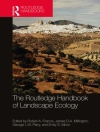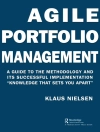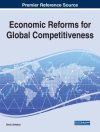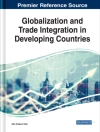Festivals have burgeoned in rural areas, revitalising old traditions and inventing new reasons to celebrate. How do festivals contribute to tourism, community and a rural sense of belonging? What are their cultural, environmental and economic dimensions? This book answers such questions – featuring contributions from leading geographers, historians, anthropologists, tourism scholars and cultural researchers. It draws on a range of case studies: from the rustic charm of agricultural shows and family circuses to the effervescent festival of Elvis Presley impersonators in Parkes; from wildflower collecting to the cosmopolitan beats of Chill Out, Australia’s largest non-metropolitan gay and lesbian festival. Festivals as diverse as youth surfing carnivals, country music musters, Aboriginal gatherings in the remote Australian outback, Scottish highland gatherings and German Christmas celebrations are united in their emphasis on community, conviviality and fun.
Innehållsförteckning
Contributors
Preface
Section 1: Exploring rural festivals
Chapter 1: The extent and significance of rural festivals – Chris Gibson, John Connell, Gordon Waitt and Jim Walmsley
Chapter 2: Histories of agricultural shows and rural festivals in Australia – Kate Darian-Smith
Chapter 3: Rural festivals and processes of belonging – Michelle Duffy and Gordon Waitt
Section 2: Nuts and bolts: Making festivals happen
Chapter 4: Local leadership and rural renewal through festival fun: the case of Snow Fest – Amanda Davies
Chapter 5: Economic benefits of rural festivals and questions of geographical scale: the Rusty Gromfest surf carnival – Patricia Tindall
Chapter 6: Greening rural festivals: ecology, sustainability, and human-nature relations – Chris Gibson and Colleen Wong
Section 3: Politics and place: Culture, nature and colonialism
Chapter 7: Performing culture as political strategy: the Garma Festival, Northeast Arnhem Land – Peter Phipps
Chapter 8: ‘Our Spirit Rises from the Ashes’: Mapoon festival and History’s shadow – Lisa Slater
Chapter 9: Birthday parties and flower shows, musters and multiculturalism: festivals in post-war Gympie – Robert Edwards
Chapter 10: On display: Ravensthorpe Wildflower Show and the assembly of place – Robyn Mayes
Section 4: Reinventing rurality
Chapter 11: Elvis in the country: transforming place in rural Australia – John Connell and Chris Gibson
Chapter 12: Marketing a sustainable rural utopia: the evolution of a community festival – Matthew W. Rofe and Hilary P.M. Winchester
Chapter 13: Chill Out: a festival ‘out’ in the country – Gordon Waitt and Andrew Gorman-Murray
Section 5: Festival people
Chapter 14: Bring in your washing: family circuses, festivity and rural Australia – Andrea Lemon
Chapter 15: Culturing commitment: serious leisure and the folk festival experience – Robbie Begg
Chapter 16: Tartans, kilts and bagpipes: cultural identity and community creation at the Bundanoon is Brigadoon Scottish festival – Brad Ruting and Jen Li
Chapter 17: What is Wangaratta to jazz? The (re)creation of place, music and community at the Wangaratta Jazz Festival – Rebecca Anne Curtis
Om författaren
John Connell is Professor of Geography and Head of the School of Geosciences, University of Sydney. His research interests span mobility, tourism, music and place identities. He has published widely on urbanisation, migration, and tourism. His books Sydney: Emergence of a World City (Oxford University Press, 2000) and Small Worlds, Global Lives: Islands and Migration (Pinter, 1999).












